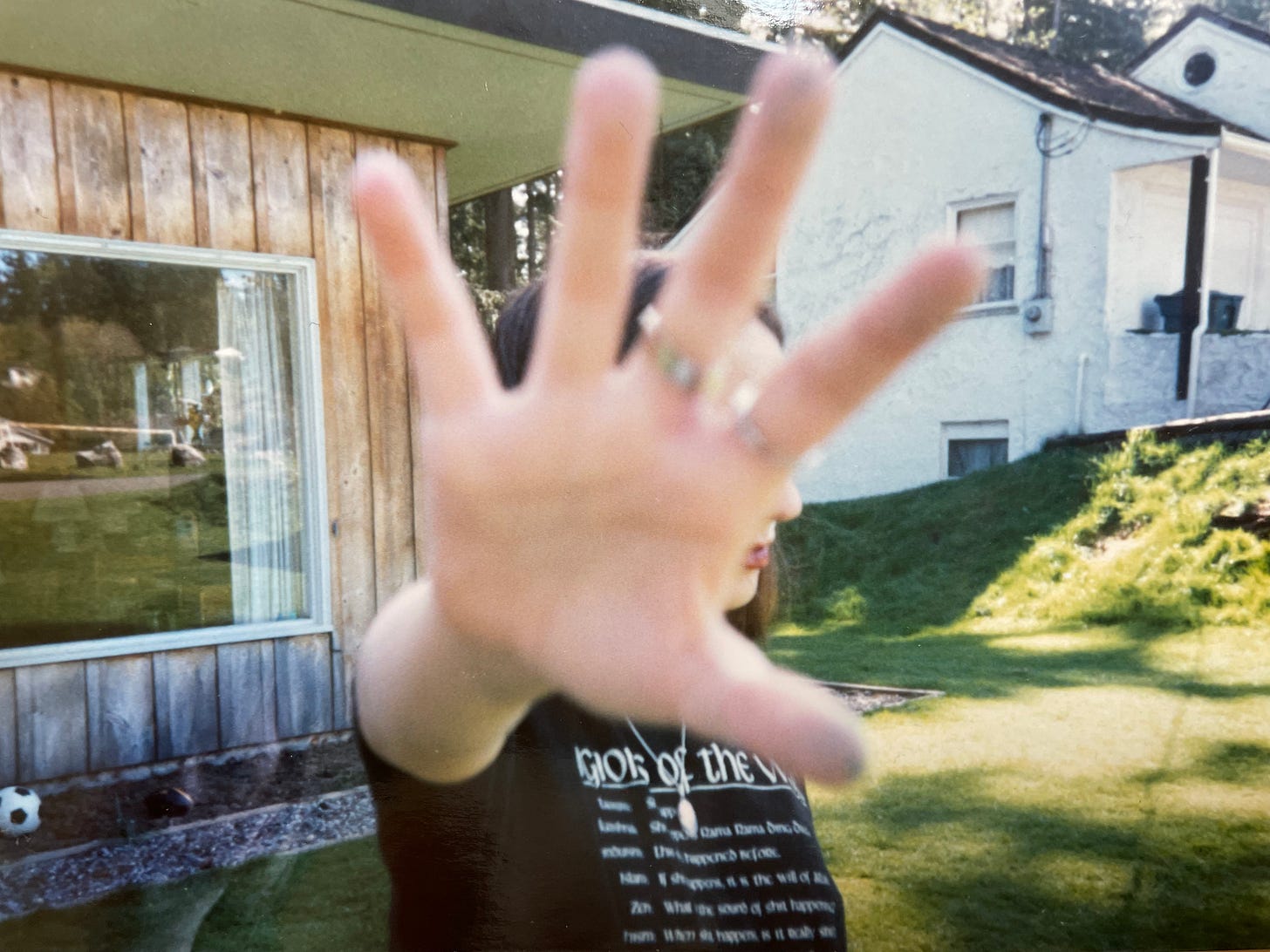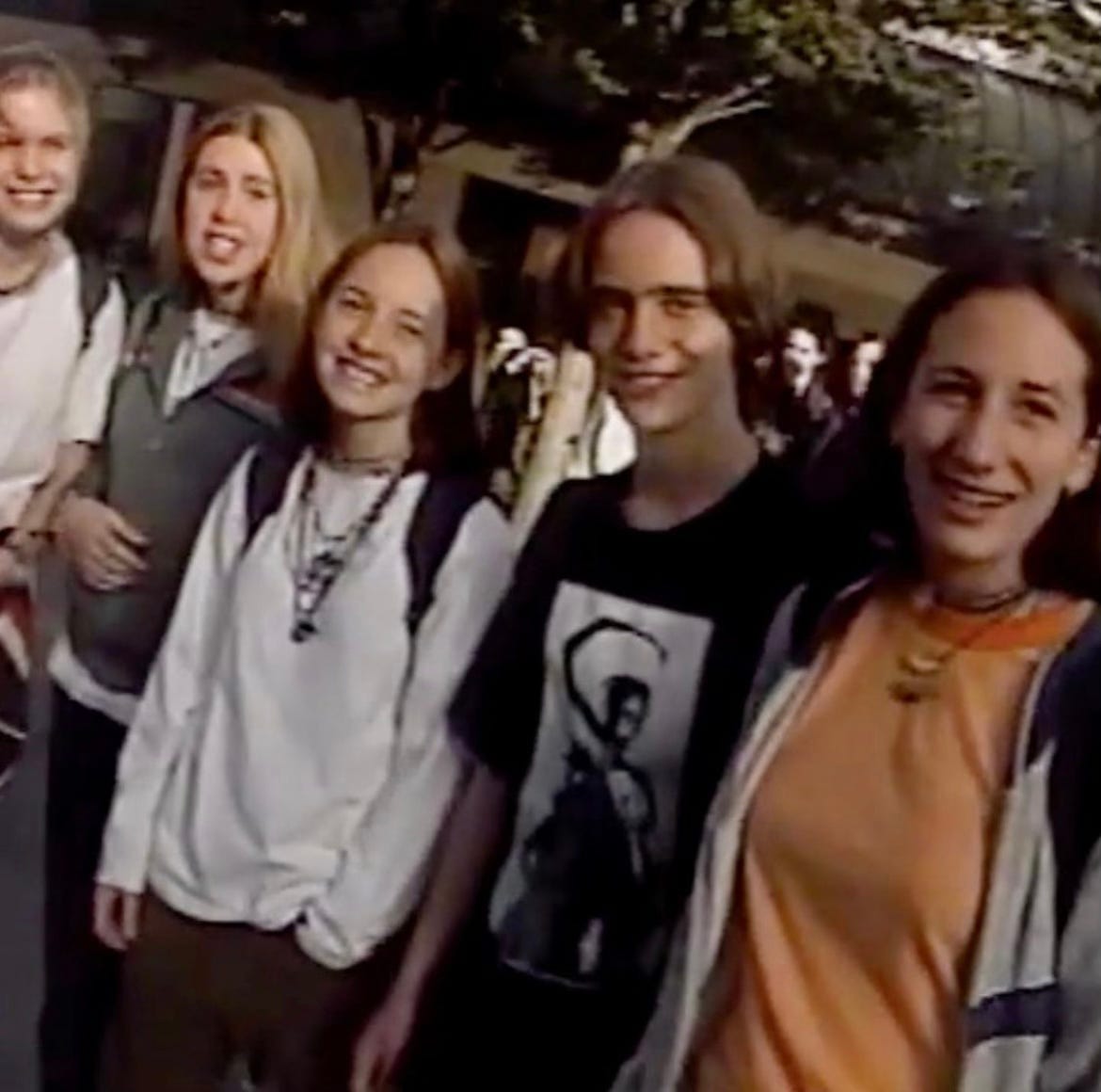You’re reading Wait, Really?, a newsletter unpacking what's in the culture, with a feminist spin. Want it in your inbox? Sign up below.
I remember exactly what I felt like at age 13.
I was angry at my parents, sad for no reason, hated the way I looked, and was insecure about friends and boys and my body and my skin, feelings too big to possibly articulate in anything other than emo song lyrics I hung from my bedroom wall, bad poetry I wrote and delivered to my two best friends on lined notebook paper we intricately folded into origami shapes, and the sound of Nirvana’s “In Utero” that blasted from my boombox in my bedroom.

I wasn’t allowed to have a lock on my bedroom door, but my friend Rachel and I stole a metal DO NOT ENTER sign from the girls’ bathroom at school, which I hung on the outside of my door — and I really meant it. Occasionally, we’d bike over to the park next to the house where Kurt Cobain shot himself, and burn candles and incense while we scrawled our darkest feelings into the wooden bench.

There’s a meme going around TikTok these days, about how we are all teenage girls. And in a way we are — this is when identities form, when estrogen spikes, when we start to discover who we are. It is also, as researchers and journalists like Carol Gilligan, Peggy Orenstein, Rachel Simmons and Donna Jackson Nakazawa have documented, when some girls suddenly revert into themselves — their confidence dropping three times the rate of their male peers.
And that was all before the age of social media.
Over the past couple of years, it’s been hard to miss the incessant drumbeat of alarming headlines about teens and social media, and in particular girls. But I was curious about one particular tension: What happens when girls’ self-confidence collides with the thing that seems to be obviously contributing to their mental health struggles, and which they are legally allowed to join at age 13?
For the last year, I’ve been following three 13-year-old girls — London, Anna and Addi (that’s them above!) — as they made their way through the emotional battlefield that is 8th grade. What happens, I wondered, when the challenges of any teenage girl — friendships, crushes, puberty, figuring out your place in the social hierarchy — clash with the thing that so many parents and health officials are worried about, which is their phones?
I’m not one of those people who thinks that social media is a bad thing altogether; there are plenty of good things about it, and all sorts communities that allow teenagers to find like-minded people. (I have no doubt that finding a bunch of weirdos like me in 1990s Seattle might have helped me feel less alone at 13.) But we also simply don’t know its long term effects on the teenage brain.
And yet, there’s really no escaping it. As Anna, a 13-year-old near Denver, Colorado, told me: “I feel like not having social media makes me just as insecure as having it would. Because people are always talking about things that happened on social media. I can’t relate to any of it.”
Being 13 is out now in The New York Times — and I hope you’ll give it a read, a watch and a listen. (If you do one thing, please listen to the audio! You can hear from the girls in their own voices.)
It’s not an exhaustive account. But it is, I hope, an authentic peek inside being 13 in the age of social media.








My life ahead seemed bleak when I was in college so I shudder to think about growing up with social media. I was wrong about my life, thankfully, but I can still recall the feeling.
I just laid in bed and read this whole piece out loud to my boyfriend because I KNEW how good it was going to be. Incredible reporting Jess -- I too shoved things from Victoria’s Secret deep in my closet after my mom told me they would cause me “health problems”